Ojén is one of the White Villages of the Sierra de las Nieves where you can discover the wilderness. With wonderful walks, this is an ideal destination for those who want to combine the beach and the sun with beautiful trips through the hinterland. Since the mountains rise directly from the Costa del Sol, they offer an impressive sight from the summit. In all of the rugged and hilly terrain, there is only a small part cultivated in which nature can be admired with all of its unspoilt beauty.
The best walking period is obviously Spring or Fall, when temperatures are still somewhat bearable. During Summer months, when the mercury marks above 30°C, difficult mountain hikes are not very recommended. But there are some hikes that are great to do in summer.
Sierra de las Nieves
The Sierra de las Nieves Natural Park stretches from the hills of Marbella, in the mountain village of Ojén, to Tolox and to Malaga and in the north to Ronda. In the middle of the 202 km2 area, you can find the highest peak, la Torrecilla, of almost 2000 meters high.
Apart from a few villages, which form a rural mountain community, this isolated area is largely uninhabited, and has seen very little human influence or activity, such as agricultural cultivation. For this reason, it has an unusually rich variety of indigenous flora (pine, fir, ash, chestnut, wild olive and oak trees, as well as juniper) and fauna, including mountain goat and mouflon.
As the name, “Sierra de Las Nieves” suggests, the park is sometimes snow-covered in winter (especially in January and February). The snow used to remain solid a lot of time. The snow that fell in Winter was stored in Spring in snow wells to use in Summer. Until the fifties, that snow was transported by donkeys through the routes to be used as a coolant for the warehouses on the coast to keep fish and meat fresh. There are still wells in the Park, some of them have been recovered and reconstructed so this old craft does not fall into oblivion. Nowadays, the place is mainly used for hiking trails.
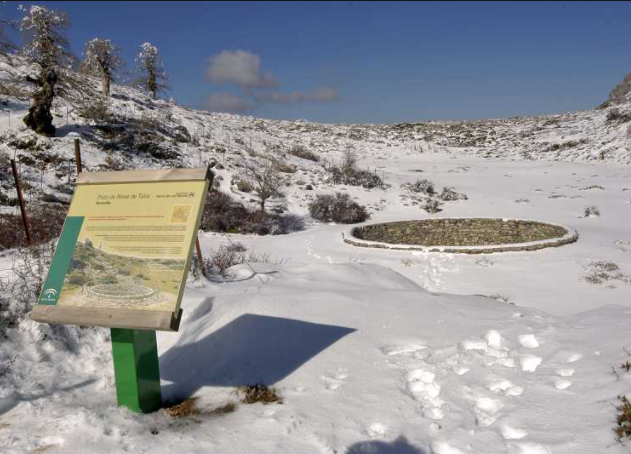
As the name, “Sierra de Las Nieves” suggests, the park is sometimes snow-covered in winter (especially in January and February). The snow used to remain solid a lot of time. The snow that fell in Winter was stored in Spring in snow wells to use in Summer. Until the fifties, that snow was transported by donkeys through the routes to be used as a coolant for the warehouses on the coast to keep fish and meat fresh. There are still wells in the Park, some of them have been recovered and reconstructed so this old craft does not fall into oblivion. Nowadays, the place is mainly used as hiking trails.
Flora and Fauna, UNESCO Biosphere Reserve since 1995
The pine forests of the Sierra de las Nieves Natural Park extend over about three thousand acres and there is even a pine tree, “Pinsapo de las Escaleteras”, that got the status of nature reserve. This specie you will only see in the South of the Peninsula and the North of Morocco. Another tree that is common in the area is the Portuguese Oak.
In the sierra, can be found some herds of Iberian mountain goat, with around 60 animals each herd. Also gazelles, ibex and other small mammals such as the Meloncillo (faraorat) are found sometimes. Besides, there are always large and small birds of prey to see, such as the golden eagle which is a protected species. You will definitely see them circling, during one of the following hikes.
Easy walks to start with, from and back to the village
A walk that is easy to do is the one that goes from Ojén to the El Cerezal park. Plenty of opportunities to stop and have lunch. The walk will take you 2 hours.
Another one, starting from the village, goes along the river Rio Real. It ends at Charco de las Viñas, a small pond for a quick dip. If you follow the river to the other side, downstream, you will end up on Marbella beach where you can have lunch at a chiringuito.
Hikes from Juanar, the Ojén mountains
Many walks start at “Refugio de Juanar”, both short and long ones. You can get there from the village of Ojén in about 10 minutes by car.
A wonderful short and easy walk (45 minutes to go and 45 back) that leads to a mirador (viewpoint) from which you can see the whole city of Marbella. Easy with kids as well. Halfway you can turn off this path to continue for the wonderful walk up the mountain to Cruz de Juanar. From the cross there are even better views to the Mediterranean and Marbella. This roundtrip takes 2 1/2 hours.
Experienced hikers can do the Climbing of the Concha (1215 m).To do this trip, to the highest mountain in Marbella, it is recommended to wait for a nice, not too hot day with clear weather or to start very early in the morning. This tour is intense and climbs to 1200 meters. But efforts will be rewarded with stunning views of the Lake of Istan, Mediterranean Sea, Gibraltar, Morocco and Sierra Nevada. Heavy and steep with chains on the most difficult part. Never forget to take at least 2 litres water a person and you need 5 to 6 hours to go and return.
If you don’t like to do this most challenging one, The Pozuolo trail is a good option. This trail offers a beautiful view to the snowy peaks of the Sierra Nevada in Spring (when it is clear). There are flowers everywhere, raptors flying sometimes and, if you are lucky, you can also find the cabra montes (mountain goats) on the slopes. A roundtrip of 3 hours.
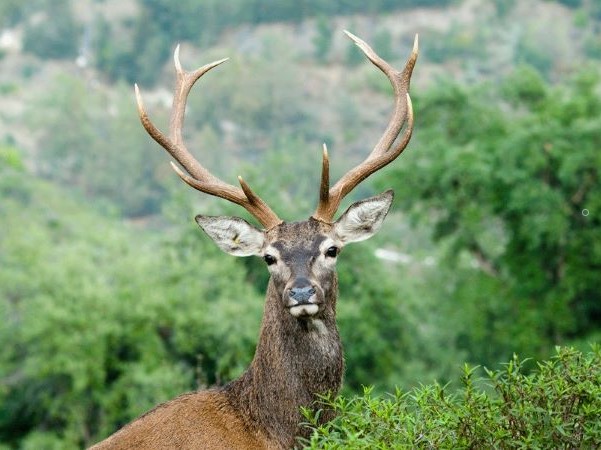
ECO RESERVA OJÉN
Another way of exploring the Sierra de las Nieves is to visit the Ecological Reserve of Ojén. You can make a jeeptour and enjoy a wonderful experience in the wild nature. It’s not a zoo neither a safari but rather a natural shelter for the wildlife with preservation intentions and environmental education.
Ideal for families with children and to observe deer, mouflons and mountain goats. With your support, you are helping to maintain this refuge of life and to ensure the well-being of animals at risk. Ask us about the different options to make a tour.
And more……..
The walks as discussed here are the most beautiful mountain walks that can be made from Ojén. A little further away are many more beautiful hiking areas such as those in the Sierra de Grazalema, the National Park El Torcal de Antequera and the beautiful King’s Path. Along the coast, hard work is currently underway to complete the path (Senda Litoral). This path runs from Nerja, via Malaga, all the way along the coast to Manilva, about 180 km. We will elaborate on this path in a future article. It was scheduled to be ready in 2020 but still has some missing connections here and there.
If you would like to read about this path now, take a look at the site of the Coastal Path.
“9 things you should know before climbing La Concha“
Blog Marbelja.nl

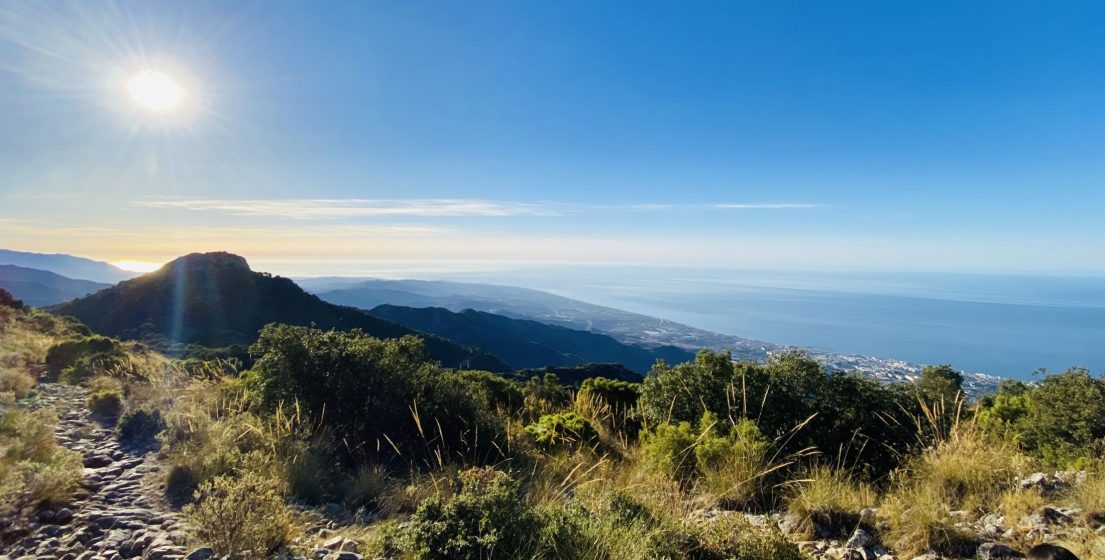
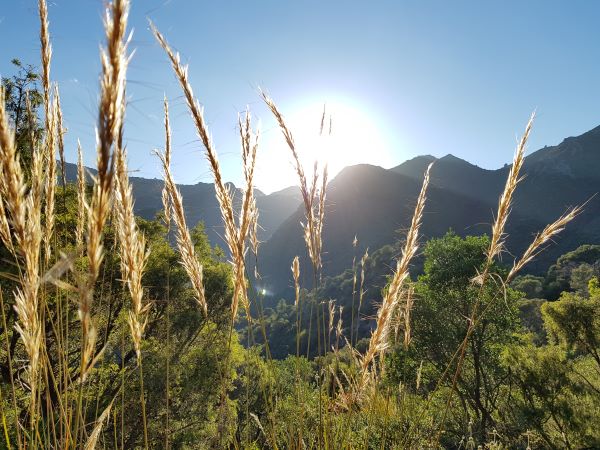
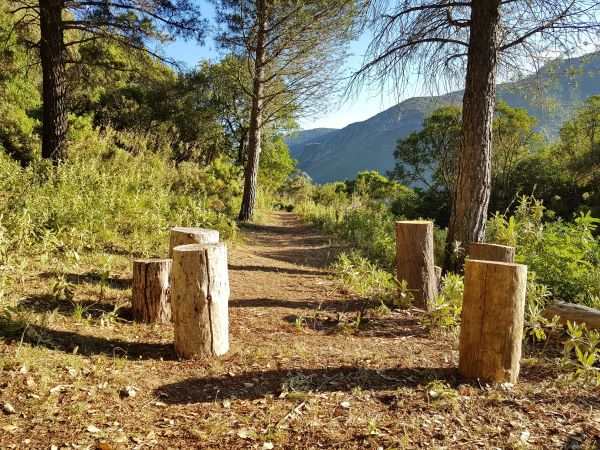
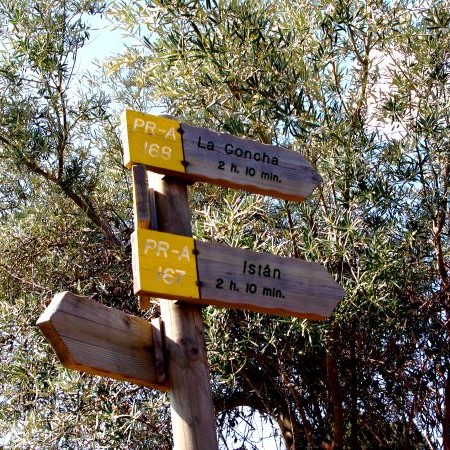
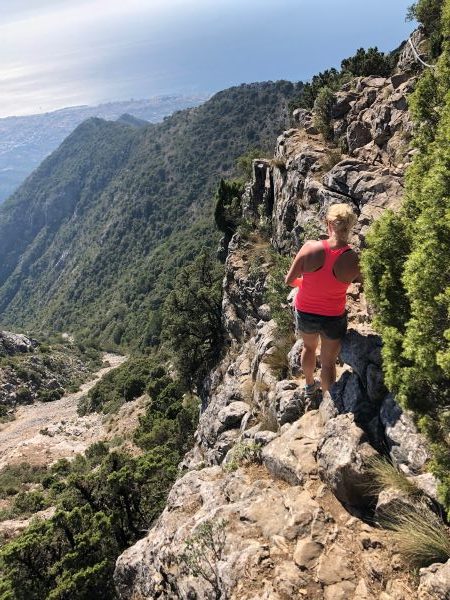
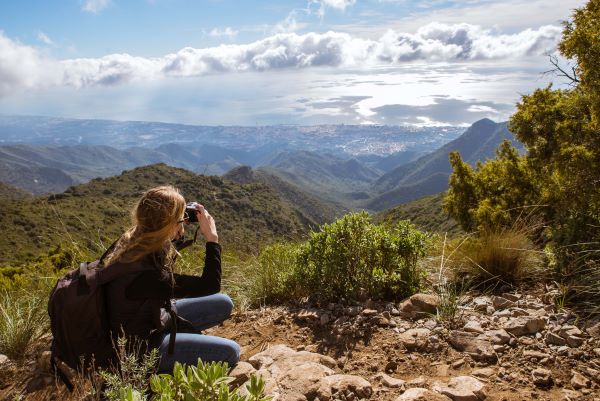
Interesting article!